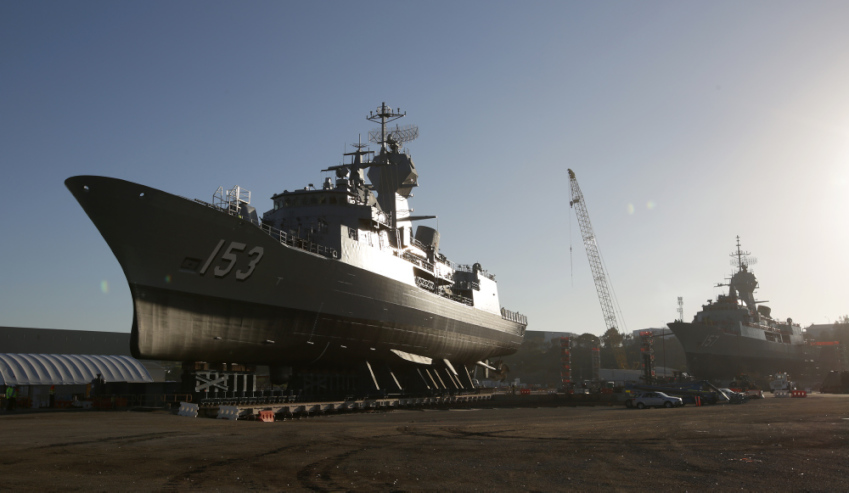An Australian shipbuilder must be used to construct the nine Future Frigates if Australia is to have any chance of developing a sovereign shipbuilding capability, the Defence Teaming Centre has said.
South Australian Senator Nick Xenophon raised serious concerns about the $35 billion project after leaked tender documents revealed there is no mandate that forces the use of ASC Shipbuilding or any Australian shipbuilder like Austal.
"Concerns raised ... by revelations that the Future Frigate tender document does not mandate the use of ASC Shipbuilding and its workforce, nor any Australian shipbuilder, require urgent attention," said Defence Teaming Centre CEO Margot Forster.
"Minister Pyne has consistently reinforced the federal government’s commitment to developing a sovereign shipbuilding capability in Australia and an intent to foster an export-focused defence industry.
"Only by building the Frigates in an Australian shipyard, using an Australian workforce and established Australian shipbuilders, will we develop the necessary skills, knowledge and experience to become a sovereign shipbuilding nation capable of exporting."
The elusive definition of sovereign shipbuilding has once again been raised across government and defence industry, with Forster suggesting design, build, sustainment and exports must form part of the definition.
"In order to clarify the process, the Commonwealth should define what it understands sovereign shipbuilding to be," said Forster.
"Defence industry believes it to be the ability to design, build, upgrade, maintain and export, in and from Australia, with work undertaken and controlled by Australians.
"This is an ambitious definition, but anything less will only achieve partial sovereignty and lead to only a partial fulfilment of the national shipbuilding endeavour sought from the multi-billion dollar investment in new ships and submarines for the Royal Australian Navy."
Despite assurances from two of the three tenderers maintaining their commitment to using and building up an Australian workforce, Forster cautioned that the lack of mandate by the government is a monumental risk.
“While it’s logical that those who have worked on previous shipbuilding projects will be first in line for opportunities on the Future Frigate program, we can’t leave anything to chance," Forster said.
“What Australia is seeking to achieve in only a few years, has taken decades to develop in countries like France, Spain and Italy through the use of sovereign entities in those countries – often owned by those governments. Developing the necessary skills and knowledge in Australia is essential and this can only be achieved by using an Australian shipbuilder and an Australian workforce."
Forster also warned Minister Pyne’s ambitions of developing a strong defence export industry are at risk without using Australian shipbuilders on the looming shipbuilding projects.
"Developing an indigenous design capability is critical. Without the capability to design ships it is extremely challenging to export them," Forster said.
"Utilising an Australian shipbuilder to build a European designed Frigate is a critical step to ensuring we develop design capability in the future."
But despite Xenophon’s calls for a new tender process, Forster said it is up to the government to ensure a plan is in place for skills and knowledge transfer to Australia.
"Cancelling the Future Frigate tender and starting again is absolutely not the answer. This would be detrimental to both local industry and the workforce who are desperately in need of
opportunities now," she said.
"But, the Commonwealth must work with the tenderers to ensure they have a plan to transfer skills and knowledge to Australians and work with ASC Shipbuilding and its local partners."






